
| Year | History | Museum Curator | Image |
| 1885 | The University of Arizona is established as the first university in Arizona Territory. | Image
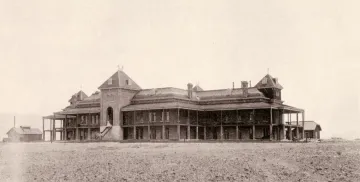
| |
| 1887 | Construction started on the Arizona School of Mines building, later to become known as Old Main. | ||
| 1892-1893 | The first references to the Mineral Museum appear in the U of A Register, which describes the intention to “make the Museum of Geology and Mineralogy an adequate representative of the ores and minerals of Arizona, as well as a place for the deposit of everything illustrative of the practical workings of the mines, mills, and furnaces.” | Theodore B. Comstock, Director of the School of Mines, and a geology and mining instructor, became curator. | Image
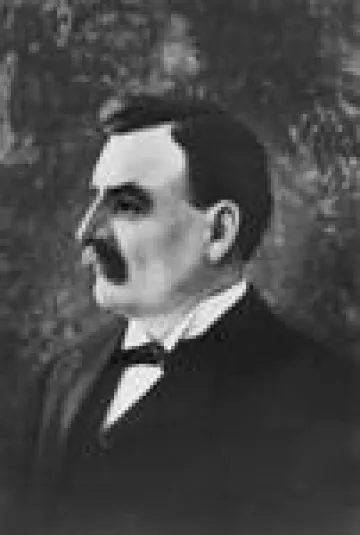
|
| 1893 | Due to limited space in the library in Phoenix, the legislature designated that a museum be established at The University of Arizona. This Territorial Museum housed everything from rocks and minerals to historical documents and Native American artifacts. | Herbert Brown became curator. He was also the owner of the Tucson Citizen and later warden of the Territorial Prison in Yuma. William P. Blake, director of the School of Mines and Territorial Geologist as well as geology and mining instructor, arrived in 1895 and assumed many of Brown's responsibilities with regard to the Museum. During his tenure, Blake succeeded in consolidating the many scattered collections throughout Old Main. | Image
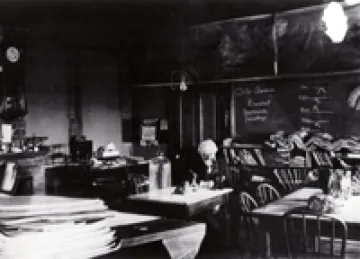
|
| 1905 | The Territorial Museum moved into the first, and part of the second floor, of the newly constructed Library-Museum Building (today the Douglas Building) due to the lack of space in Old Main. This new building was shared with the Geology, History, English, and Mathematics Departments. | Blake retired and Cyrus F. Tolman assumed Blake's teaching and possibly his Museum duties. In 1910 Tolman became head of the Geology Department. | Image
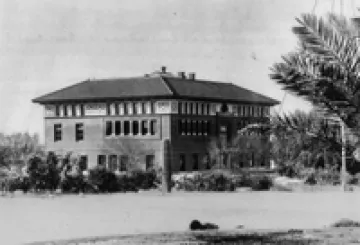
|
| 1910-1915 | With the death of Blake in 1910 and Brown in 1913, the museum was placed under the curatorship of the Biology Department. | Image
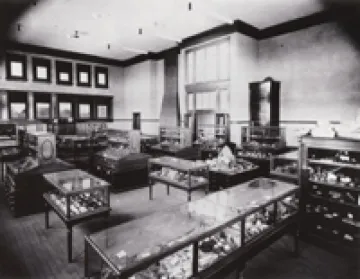
| |
| 1912 | With Arizona’s statehood, the Territorial Museum became the State Museum. | ||
| 1915 | The State Museum was moved into the new Agricultural Building (today the Forbes Building) and the emphasis shifted from minerals to archaeology. | Bryon Cummings became the Museum director. | Image
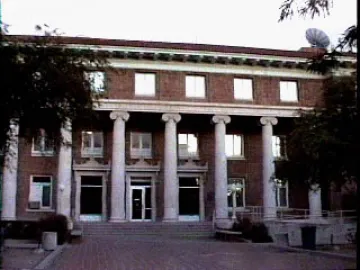
|
| 1918-1958 | The minerals were separated from the rest of the Museum and along with the Mineralogy Department, moved into the second floor of the Mines and Engineering building (today the Old Engineering building). The Museum becomes its own entity. | Image
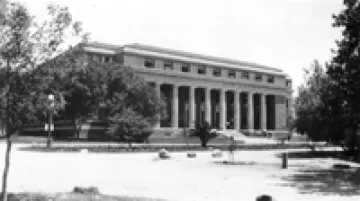
| |
Image
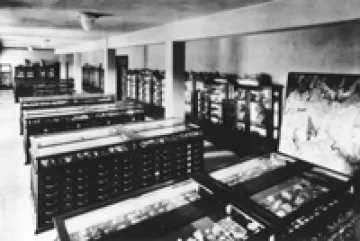
| |||
| Gordon M. Butler served as Museum Curator from 1919 to 1940. | Image
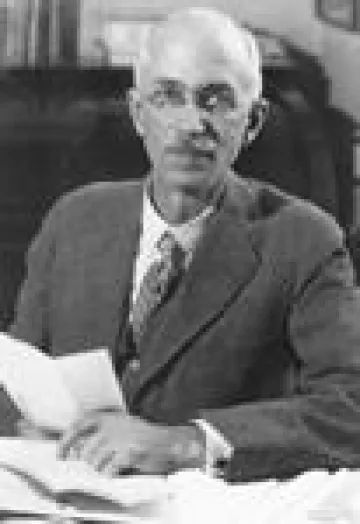
| ||
| Fritz Galbraith served as curator between 1941-1961. | Image
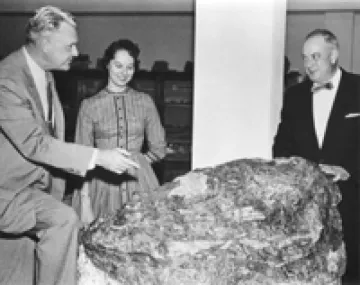
| ||
| 1958-1993 | The Museum moves into the Geology building (today the Mines and Engineering Building). | Dr. John W. Anthony became Museum Curator in 1964. | Image
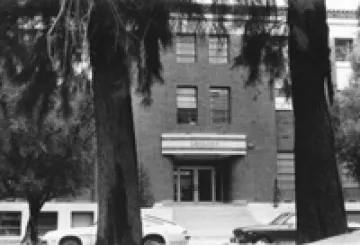
|
Image
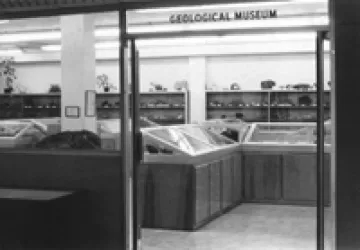
| |||
| 1984 | Dr. Terry Wallace assumed the position of curator from a retiring Dr. Anthony in 1984. In 2017 Dr. Wallace was appointed the director of Los Alamos National Laboratory. | Image
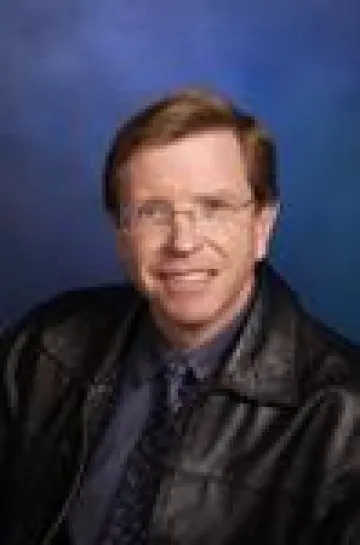
| |
| 1993 | The Museum moves into the lower level of the Flandrau Planetarium (today Flandrau: The UA Science Center). | Image
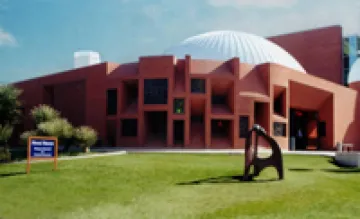
| |
| 2003 | Dr. Wallace accepted a position at Los Alamos National Laboratory in 2003 and Dr. Spencer Titley became the curator. | Image
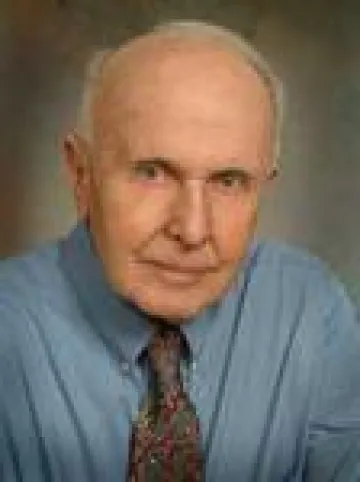
| |
| 2008 | Dr. Robert T. Downs became Museum Curator. | ||
| 2016 | The University of Arizona begins discussions of moving the collection to a larger facility. | ||
| 2017 | Ground breaks on the historic Pima County Courthouse restoration. | ||
| Early 2021 | Image
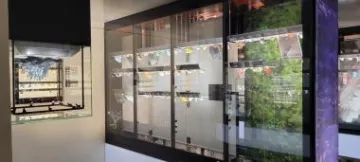
| Construction is completed and cases begin to be populated. | |
| Summer 2021 | Dr. Susan E. Leib is hired as the first woman curator of the collection. | ||
| August 2021 | Image
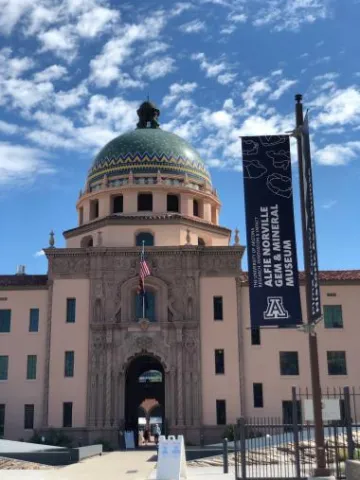
| UArizona Alfie Norville Gem & Mineral Museum opens to the public. | |
| February 2022 | Alfie Norville Gem & Mineral Museum celebrates their Grand Opening |

